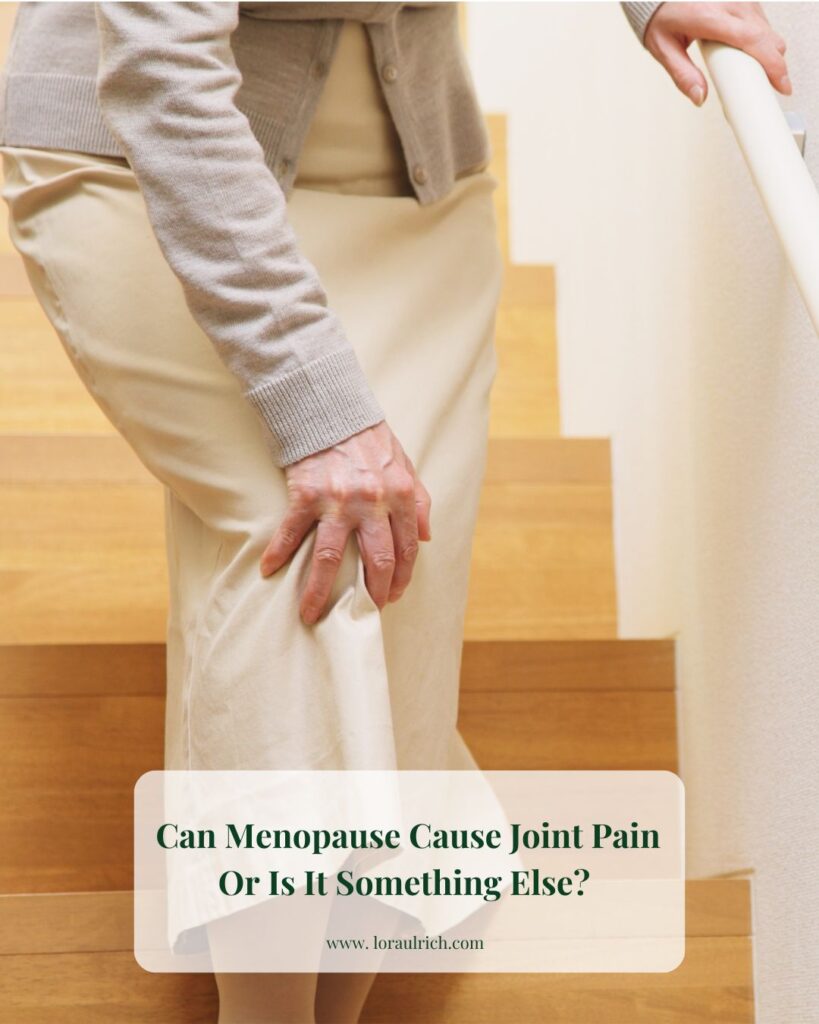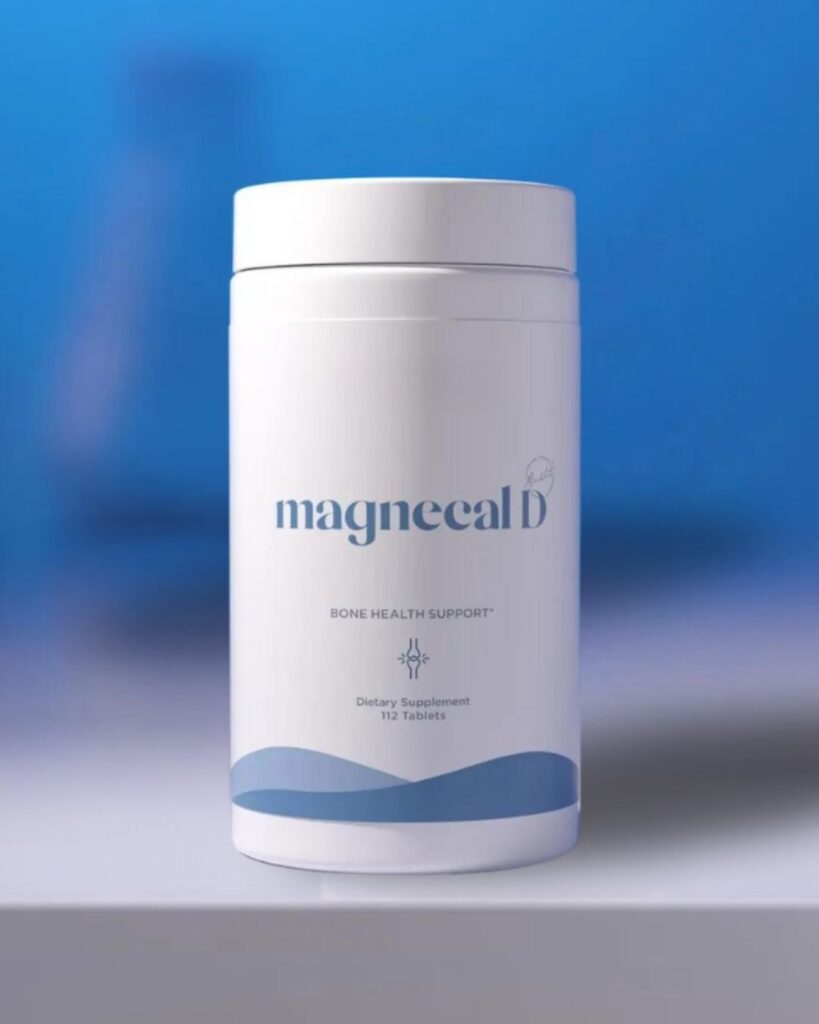
Is it aging, arthritis, or hormonal? This blog unpacks the estrogen-inflammation link and shares practical ways to ease joint pain. As a menopause health coach, I guide women through mobility shifts with science-backed tools that support comfort and strength.
Joint pain isn’t usually the first thing women associate with menopause. But for many, it becomes one of the most persistent and confusing symptoms. One day your knees feel stiff, your fingers ache, or your hips protest after a short walk, and you’re left wondering: Is this just aging or something hormonal?
Turns out, there’s a strong connection between estrogen levels and joint health. So if you’ve been asking, “Can menopause cause joint pain?”, you’re asking the right question.
In this post, we’ll explore how hormonal shifts impact your joints, what signs to look for, and how to support your body with practical, science-backed strategies that actually help.
Why Can Menopause Cause Joint Pain?
Estrogen isn’t just about reproduction; it’s also a powerful anti-inflammatory hormone. As estrogen levels decline during perimenopause and menopause, inflammation can rise, making joints feel stiff, achy, or swollen. This can show up as:
- Morning stiffness that takes longer to shake off
- Pain in knees, hips, hands, or shoulders
- A general feeling of “aging overnight”
So, can menopause cause joint pain? Absolutely. It’s more common than most women realize.
The Inflammation Connection
Estrogen helps regulate the body’s inflammatory response. When it drops, your immune system may become more reactive, triggering low-grade inflammation in joints and tissues. Combine that with stress, poor sleep, and nutrient deficiencies, and you’ve got the perfect storm.
Source: The Menopause Charity
If you’ve ever asked yourself, “Can menopause cause joint pain even if I’ve never had arthritis?”, the answer is still yes. This isn’t about wear-and-tear alone. It’s about hormonal shifts that affect every system in your body.
Relief That Works: Science-Backed Ways to Soothe Menopausal Joint Pain



- Prioritize Anti-Inflammatory Nutrition
One of the most powerful ways to ease joint pain during menopause is through anti-inflammatory nutrition. Think omega-3-rich foods like salmon and flaxseeds, vibrant antioxidant-packed berries, turmeric, and hormone-supportive proteins.
These ingredients don’t just taste good; they also actively help reduce inflammation and support joint mobility. If you’re looking for easy ways to bring these foods into your daily routine, my #LoraApproved recipe collection is a great place to start. Every dish is crafted with menopause-friendly nutrients in mind. 🍴
- Gentle Movement Is Medicine
Low-impact exercise like walking, yoga, or swimming keeps joints lubricated and muscles strong. Even 10 minutes a day can make a difference.
- Consider Magnesium Support
Magnesium plays a key role in muscle relaxation, nerve function, and inflammation regulation. Many women are deficient, especially during menopause.
If you’re wondering whether menopause can cause joint pain due to nutrient gaps, the answer is yes. That’s why I often recommend a bioavailable magnesium supplement to my clients. It’s gentle, effective, and supports joints.
FAQs
Which joints are more commonly affected during menopause?
The knees, hips, hands, and shoulders tend to be the most vocal. But symptoms can vary – some women feel it in their spine or neck, while others notice it in smaller joints like fingers or toes.
Can lifestyle changes actually help with menopausal joint pain?
Absolutely. Anti-inflammatory nutrition, gentle movement, stress reduction, and targeted supplements can make a noticeable difference. Many women find relief by adjusting their routines and supporting their bodies holistically.
How does magnesium help with joint pain during menopause?
Magnesium supports muscle relaxation, nerve function, and inflammation regulation, all of which are crucial during menopause. If you’re wondering whether can menopause cause joint pain due to nutrient gaps, magnesium is often part of the solution.
Learn more here and discover how it fits into a holistic approach to menopause wellness.
Your Body’s Talking, Let’s Listen and Respond with Wisdom 🌿
Joint pain during menopause isn’t a sign that your body is failing. It’s a signal that your body is changing and asking for support. You deserve to feel strong and mobile at every stage of life.
If joint pain is slowing you down, let’s change that. Whether you’re curious about supplements, nutrition tweaks, or personalized strategies for your symptoms, I’m here to help.
Join my newsletter for weekly tips on menopause wellness, hormone-friendly recipes, and supplement strategies that work.
Or let’s talk one-on-one. Book a free call and get expert guidance tailored to your journey.
+ show Comments
- Hide Comments
add a comment